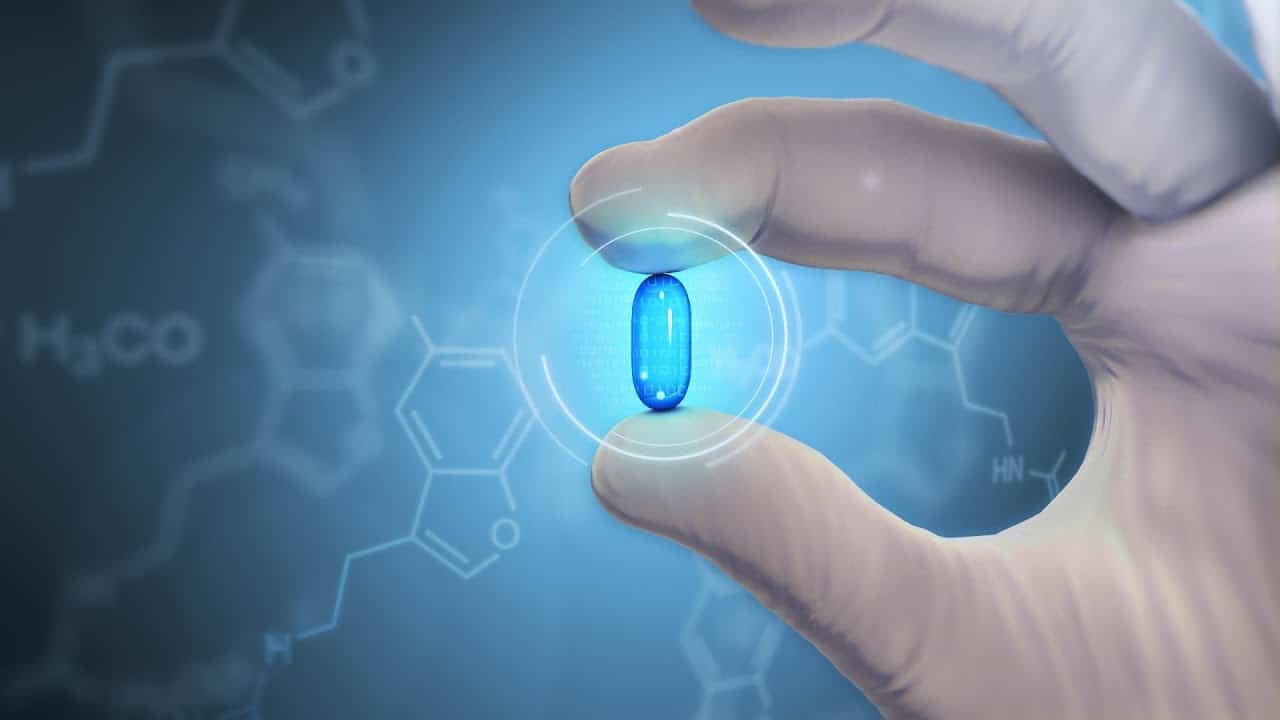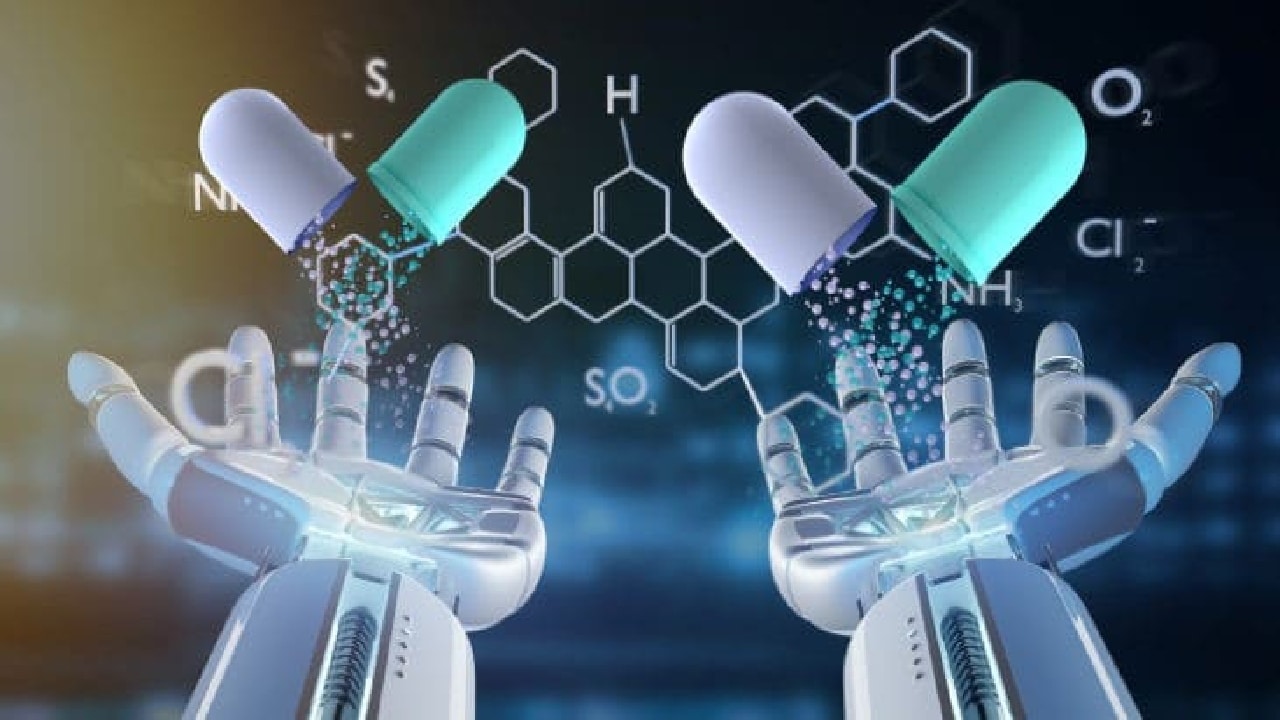The development of new drugs is a complex, resource-intensive process with a high failure rate. In this context, leveraging Artificial Intelligence (AI) and Machine Learning (ML) holds tremendous potential to revolutionize the pharmaceutical industry. These technologies enhance data analysis and predictive modeling, leading to faster and more effective treatments. In this article, we explore the role of AI in drug discovery.
Challenges of Traditional Drug Development
The journey of developing new drugs is typically fraught with challenges. It can take 12 to 15 years, involves a high failure rate, and may cost billions of dollars to bring a single drug to market. Key reasons for these difficulties include:
- Incomplete understanding of disease complexities.
- Existing disease models often lack accuracy.
- Difficulty translating model results into effective treatments.
- Declining reliability of animal testing as a predictor for human outcomes, along with growing ethical concerns.

How AI Addresses These Challenges
Recent advancements—especially in machine learning—have significantly contributed to drug discovery. In the past, scientists spent extensive time on manual tasks like sample analysis and data collection. Now, AI aims to automate and speed up these processes.
Although automation is not a new concept, its integration with AI is a game-changer. AI allows companies to sift through and analyze vast datasets to extract precise insights about drugs. Data management and analysis—pillars of pharmaceutical R&D—are now more efficient, enabling researchers to overcome many recurring obstacles.
A Paradigm Shift in Pharmaceuticals: AI as an Innovation Driver
The pharmaceutical industry is undergoing a fundamental transformation by integrating AI into the complex drug discovery process. As is well-known, developing a new drug requires significant financial investment and years of research. However, integrating AI into pharmaceutical R&D is helping to reduce both the massive costs and extended timelines. Here’s how AI is contributing to this evolution:
1. Accelerating Drug Discovery
AI integration speeds up the transition of drugs from the design stage to clinical trials. Recent analyses show that some AI-powered companies have advanced drug candidates to human trials in less than ten years, with some developed in just two and a half years. A notable example includes a leading medication for respiratory diseases that swiftly reached clinical trials thanks to AI technologies.
2. Digital Compounds and Molecular Visualization
AI’s impact extends into the digital realm, where it analyzes vast molecular libraries and protein structures using tools like 3D databases and large-scale integrations. This accelerates the discovery process from years to just months. Key benefits include:
- Rapid evaluation of millions of potential molecules.
- Intelligent search for drug compounds.
- Designing new molecules using generative models.

3. Predictive Analytics and Intelligent Systems
To reduce clinical trial failure rates, AI offers powerful tools such as:
- Text analysis of medical records using Natural Language Processing (NLP).
- Protein structure prediction and chemical compound optimization.
- Analysis of genomic data and biosignals from wearable devices to generate actionable insights.
- These tools are also used to understand drug effects post-launch, improving treatment strategies.
4. Identifying Disease Pathways and Therapeutic Candidates
Tackling complex diseases like Alzheimer’s requires precise identification of new therapeutic targets. AI is now employed to analyze genetic data and protein interactions, helping to uncover these targets. It has even facilitated the repurposing of existing drugs—like diabetes medications—to reduce Alzheimer’s risk.
AI Within the Regulatory Framework
AI, especially machine learning, is transforming drug discovery and development. Prior to AI integration, getting FDA approval was a long and costly process. But AI is gradually changing this landscape.
The FDA’s Stance on AI
The U.S. Food and Drug Administration (FDA) has shown a positive attitude toward adopting AI technologies in the pharmaceutical industry. Highlights include:
- Acknowledgment of AI’s value: The FDA has published position papers outlining its vision for AI in drug development.
- Surge in submissions: Over 100 AI/ML-related applications were submitted to the FDA in 2021.
- Risk-based framework: The FDA aims to strike a balance between public safety and innovation potential while safeguarding patient data and drug safety.

AI Integration in Pharmaceutical Companies
Incorporating AI into pharmaceutical operations can lead to a major leap in how drugs are discovered and developed. Combining AI with big data analytics has proven to reduce costs and speed up development.
How Can Pharmaceutical Companies Benefit from AI?
- Cost reduction: Potential to save billions in expenses.
- Increased efficiency: Enhances R&D productivity through data automation.
- Advanced technologies: Techniques like Virtual Ligand Screening (VLS) and protein databases help in quicker compound selection.
- Predictive modeling: Forecasting protein structures and identifying the most suitable therapeutic classes.
- Regulatory compliance: Ensuring AI usage aligns with FDA guidelines.
Steps for Integrating AI into Pharma
- Conduct thorough analysis to identify areas where AI offers the most value.
- Develop a protocol for AI implementation aligned with company values and regulations.
- Train staff to use AI tools and technologies.
- Prepare and test AI models to ensure alignment with business objectives.
- Scale usage based on company growth and market needs.
Benefits of AI in Pharmaceuticals
- Lower operational costs: Reports indicate up to a 50% reduction in hiring costs.
- Improved task accuracy: Accuracy levels can reach 90% for certain functions.
- Advances in personalized medicine: Ability to design drugs based on individual genomes and predict future health issues.
Conclusion, in an era of rapid technological advancement, the pharmaceutical industry can no longer overlook the immense capabilities of AI. No longer just a supportive tool, AI has become a strategic partner in accelerating innovation, cutting costs, and improving the success rate of discovering safe and effective treatments. Companies that proactively adopt and intelligently integrate these advanced technologies into their strategies will lead the future and gain a true competitive edge in a market demanding faster responses and more accurate decisions.
Source: AI in Drug Discovery: Accelerating Pharmaceutical Breakthroughs